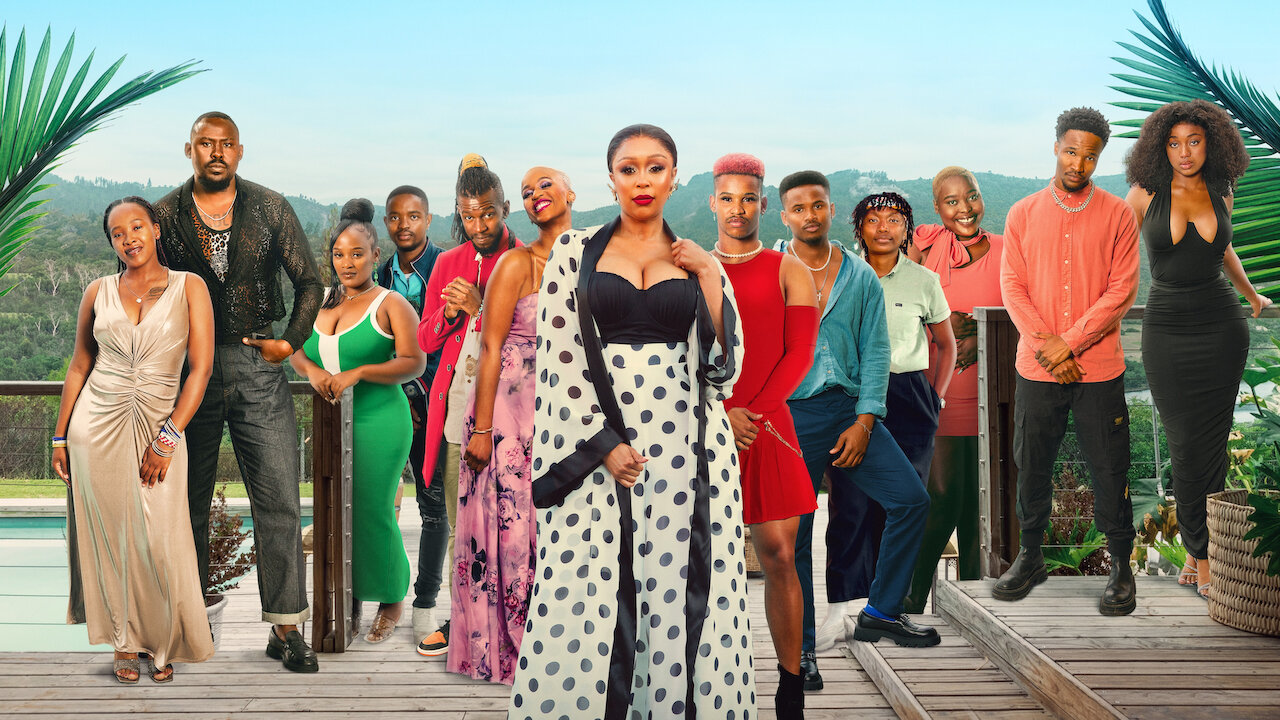https://www.youtube.com/watch?v=vQIcYz7KUz4
Love Never Lies: South Africa, which premiered in late November 2024 on Netflix, seems to stretch the concept a little further. It takes the dating show formula, adds a hefty dose of temptation and cranks the stakes up to a million rand.
Hosted by Minnie Dlamini, this eight-episode reality series, set in Knysna, on the Garden Route, hopes to test the limits of love, honesty and loyalty among six couples. Each couple is asked a rather straightforward yet complex question: how far would you go for love? Can you be honest, even when the truth could shatter everything?
While other shows like The Bachelor or Married at First Sight focus on romantic connections and initial attraction, Love Never Lies digs deeper into the core of relationships: honesty, fidelity and self-awareness.
The couples are whisked away to a villa, divided into two spaces: Villa Umjolo and Villa Umgowo.
Villa Umjolo, the more social of the two spaces, exposes the couples to “temptation”. The trick? Inviting single people as guests, to test the participants’ commitment. At Villa Umgowo the couples are kept isolated and asked to reflect on their relationships, choices and deepest fears.
At the heart of the show is the opportunity for couples to add or lose money based on their honesty using an eye-scanning lie detector. For every truth told, R10,000 is added to the prize fund, which could grow to R1-million with a start-up at R500,000. But with every lie, R10,000 is deducted from the total.
‘Two birds with one stone’
Speaking to Daily Maverick about their experiences on Love Never Lies, candidates Clayton Mitchell (26) and Wilfred Adonis (23) shared candid insights about their motivations for joining the show and the lessons they took from participating.
The couple explained that their goals extended beyond addressing relationship challenges; they also saw the opportunity as a stepping stone into the entertainment industry.
“Will doesn’t watch reality shows, so I was the one who wanted to do it. I love reality shows and always envisioned myself on one,” Mitchell said.
“When the opportunity came around, I thought: ‘We can work on the issues we have as a couple and also gain some clout. It was two birds with one stone. We could boost our social media careers while strengthening our relationship.”
Both partners are eyeing careers in the entertainment space; Mitchell is focusing on music and content creation, and Adonis is exploring acting, hosting and dance.
Adonis said the show helped them grow closer and improve communication, patience and understanding.
Would they do the show or something similar again? No, said Adonis.
“I feel like we now know where we are as a couple and what we want from each other. Another show like this wouldn’t add anything new. Plus, I don’t want to put myself through that emotional roller coaster again,” he said.
“Unless it’s a game show or a competition, I’m staying away from temptation-based formats.”
The reality of reality TV
Love Never Lies is not the only love-based reality show filmed in South Africa. The Ultimatum: South Africa, Married at First Sight and Date My Family have also become cultural staples.
Local reality shows like Ngikhethele, Bae Beyond Borders, and Lovey Dovey reflect unique cultural narratives and dynamics, making them especially resonant with South African viewers.
Nomsa Philiso, CEO of General Entertainment at MultiChoice, said: “When the world around us seems crazier than fiction, there is nothing better than relaxing and escaping the chaos of everyday life by slipping into the lives of others.
“The universal appeal of relationship-based shows taps into themes of love, our desire for human connection, and the hope for a fairy tale romantic ending.”
Philiso adds that the genre allows viewers to see themselves in the narratives while the unscripted drama keeps them entertained.
“These shows also encourage reflection, as viewers often see themselves in the participants or compare their own lives to the chaos on screen. This mix of empathy and social comparison creates a unique blend of connection and entertainment, especially as viewers vicariously experience the roller coaster of emotions and become invested in the journeys of these real-life participants.”
Adelaide Joshua-Hill, a consultant for Urban Brew Studios, which produced The Ultimatum: South Africa, said the diverse and dynamic nature of dating in South Africa allowed them to “develop localised dating shows that reflect the unique practices and cultural nuances of our society”.
A mirror to our own relationships?
For relationship expert Paula Quinsee, love-based reality shows are a response to both audience demand and the evolving cultural attitudes to relationships.
“These shows allow viewers to reflect on their own relationships, sparking open conversations about love, loyalty and what it takes to maintain a healthy connection.
“While they may provide entertainment, they also have the potential to shape viewers’ perceptions and behaviours regarding love and commitment and what it takes to sustain a healthy relationship in the long-term.”
However, some critics of reality television argue that these shows can depict a distorted reality through misleading editing and coaching of participants, to generate storylines that often come across as an act more than reality, with emotions, complaints, anger and breakdowns recorded and aired for all to see and comment.
Relationship counsellor Lauren Claucus explains: “The spotlight is likely to have participants presenting an edited, palatable version of themselves, and these shows are often packaged for consumption or dramatic effect.”
This altered the reality of what the audience experiences.
“Some shows do portray real issues that couples struggle with, like lack of chemistry, poor communication and the inability to take responsibility, and some sensationalise certain aspects, like making assumptions about conflict outcomes or targeting juicy toxic bits that have the audience feeling better about their relationships.”
She cautioned viewers to remember that what they see is often a curated depiction, far removed from the complexities of genuine partnerships, which are different for everyone. DM





